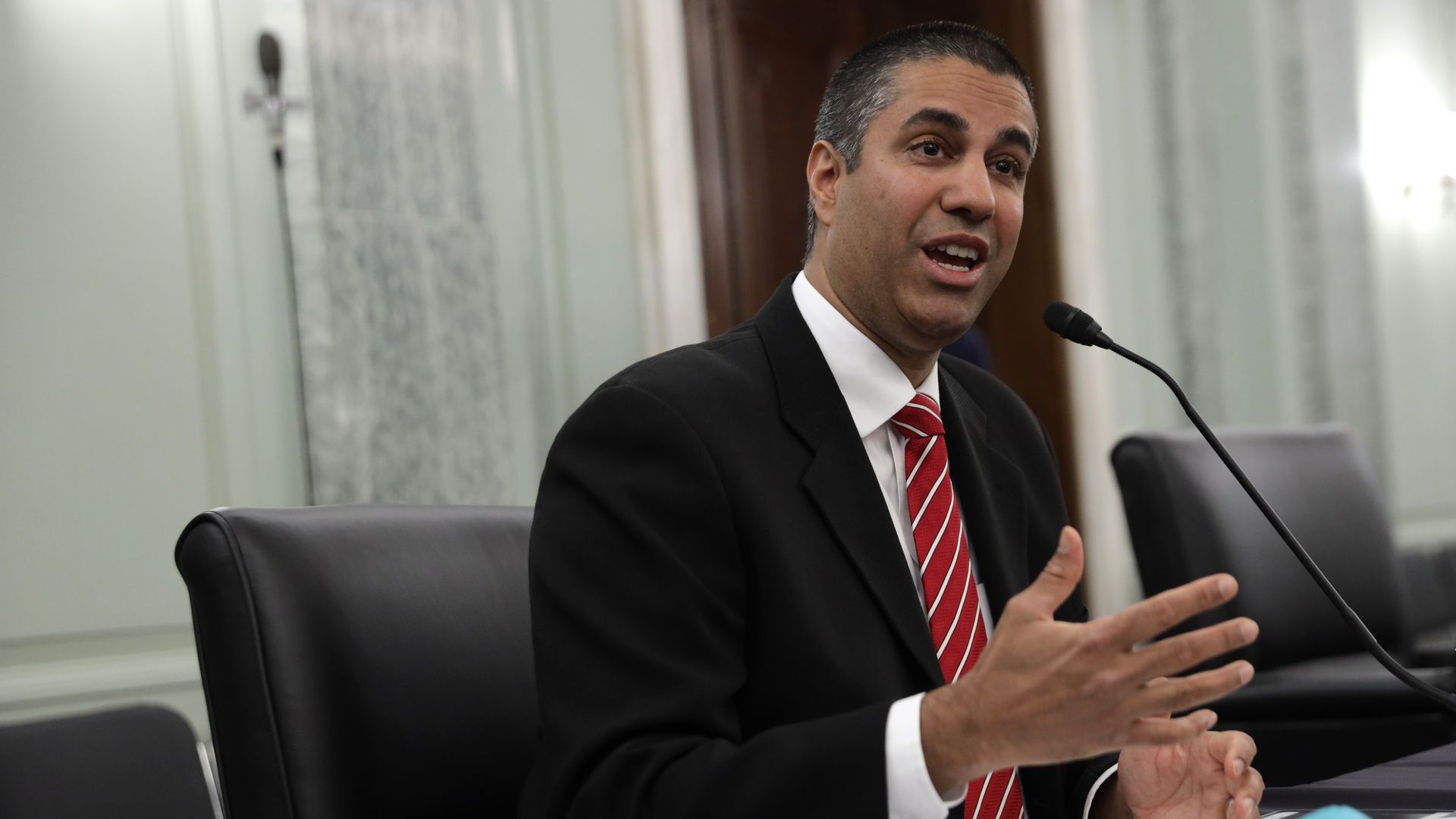Cities lose lawsuit against FCC's 5G rules
Add Axios as your preferred source to
see more of our stories on Google.

Ajit Pai. Photo: Alex Wong/Getty Images
A federal appeals court upheld the Federal Communications Commission's rules that limit municipalities' ability to negotiate with telecom companies such as AT&T and Verizon that are seeking to deploy thousands of 5G antennas on city streets and neighborhoods.
Why it matters: The ruling by the Ninth Circuit Court of Appeals is a blow to dozens of cities that sued the agency, claiming the FCC's 2018 rules takes away their leverage and autonomy in deciding how the telecom industry can install "small-cell" antennas to build 5G networks.
The other side: The FCC maintains that its rules — which prohibit excessive fees and permitting delays by municipal governments — will speed up the deployment of 5G networks throughout the country by removing burdensome barriers to telecom providers.
"The wind is at our backs: With the FCC's infrastructure policies now ratified by the court, along with pathbreaking spectrum auctions concluded, ongoing and to come, America is well-positioned to extend its global lead in 5G and American consumers will benefit from the next generation of wireless technologies and services."— FCC Chairman Ajit Pai in a statement
The big picture: How quickly telecom providers can deploy the 5G antennas throughout cities is a critical factor in reaching more ubiquitous 5G coverage throughout the country.
- Because of the technical limitations of 5G airwaves, 5G networks require hundreds of thousands of small-cell antennas to carry wireless signals from across cities and towns.
- Some major cities, however — including San Jose, Los Angeles and Portland — have argued that they should have more say over how those small-cell antennas are installed on public right-of-ways and city property.
Go deeper: The battle over 5G deployment in America's cities
